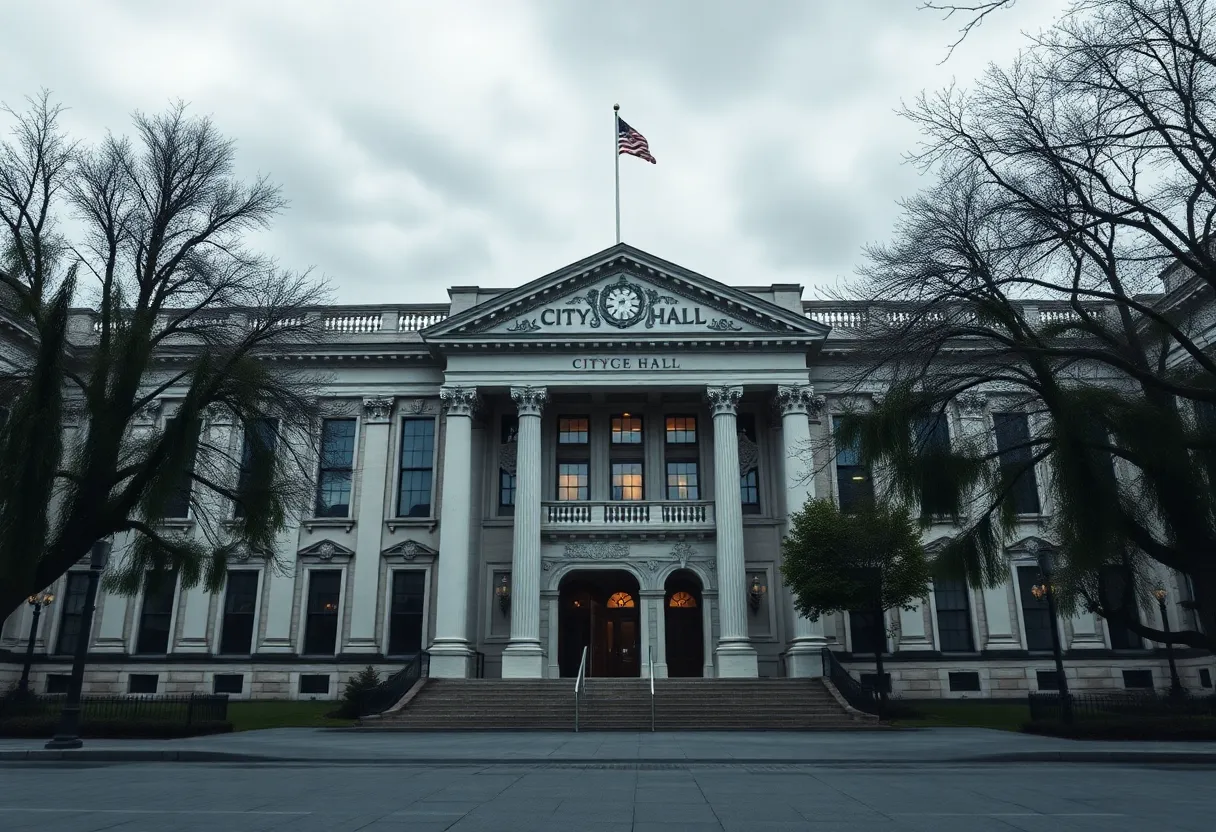California, August 26, 2025
News Summary
California lawmakers are evaluating several bills aimed at regulating artificial intelligence in employment practices. One key proposal, Senate Bill 7, would require a 30-day notice before implementing AI for hiring, promotions, and terminations. It grants workers the right to appeal AI decisions and prohibits the use of AI to infer sensitive personal information. Labor unions have shown strong support for these regulations to protect workers’ rights amid growing concerns over AI’s impact on employment and privacy.
California lawmakers are currently evaluating several proposed bills aimed at regulating the use of artificial intelligence (AI) in employment decisions. One of the most significant pieces of legislation under consideration is Senate Bill 7 (SB 7), which seeks to enhance worker protections in the increasingly AI-driven hiring, firing, and promotion practices.
SB 7 requires employers to provide a 30-day notice prior to implementing AI for decisions related to hiring, pay, promotions, and terminations. The bill also ensures that workers have the right to appeal decisions made by AI systems and explicitly prohibits employers from using AI to infer sensitive personal information, such as immigration status, health issues, or psychological states.
Concerns regarding AI in the workplace have been underscored by a recent audit revealing that many companies utilize AI-driven algorithmic management tools to determine employee pay. This practice, which first emerged in the gig economy nearly a decade ago, has raised alarms, particularly as some AI resume screening tools have been found to disqualify candidates based on arbitrary factors, which may include aspects related to race, gender, or physical appearance, such as wearing glasses.
Support for SB 7 comes from the California Federation of Labor Unions, AFL-CIO, which represents over two million workers statewide. The organization has significantly invested in political advocacy, contributing over $2.1 million to Assembly and Senate members last year alone. Federation president Lorena Gonzalez emphasized that employers should not exploit predictive tools that infringe on workers’ privacy, such as discerning whether an employee is pregnant.
In addition to SB 7, lawmakers are considering other related bills, such as Assembly Bill 1331 and Assembly Bill 1221, both of which focus on workplace surveillance regulations. Senator Jerry McNerney, the author of SB 7, has expressed a desire to find a balance between enhancing productivity through AI technology and safeguarding worker rights as advancements continue to unfold.
Potential amendments to SB 7 may be on the table in response to concerns raised by businesses regarding the increased operational costs that could arise from the new regulations. McNerney suggested that streamlining the appeal process might alleviate some financial burden on employers.
Proposed bills with anticipated costs surpassing $50,000 are placed on a suspense calendar, enabling appropriations committees to review and possibly dismiss them for budgetary reasons. The California Assembly’s analysis indicated that compliance with SB 7 could incur costs of $600,000 or more for the state, although the overall financial impact on state agencies is still uncertain due to the undisclosed utilization rates of these automated systems.
Previous endeavors to regulate AI in employment have experienced considerable opposition, often leading to the dilution of proposed measures. This has been exemplified by the California Privacy Protection Agency’s prior efforts to enact AI regulations that were ultimately softened.
Another notable bill, Assembly Bill 1018, aims to mandate testing for automated decision-making systems before they can be deployed and provides individuals with the right to appeal automated decisions. However, last year’s version of AB 1018 was withdrawn amid amendments that narrowed its focus to employment evaluation issues. Strong resistance has emerged against AB 1018 from major tech corporations and various healthcare organizations, which are concerned about increased operational costs and the detrimental effects on patient care.
The California Civil Rights Department has initiated measures to prohibit discrimination in automated hiring processes, with these protections coming into effect in October of this year. Moreover, a recent public survey indicated a general unease surrounding AI. Approximately 60% of Californians believe that the benefits of AI predominantly favor the wealthy, and over 70% expressed a desire for legislative actions to shield individuals from the adverse consequences of AI.
Advocates stress that transparency in AI usage concerning employment decisions is critical for fostering fair workplace environments. Without successful implementation of these proposed legislative measures, critics worry that the momentum towards effective regulation of AI could stall in California.
FAQ
What is Senate Bill 7 (SB 7)?
Senate Bill 7 is a proposed legislation in California that seeks to regulate the use of AI in employment decisions. It requires employers to notify workers 30 days in advance when implementing AI for hiring, firing, promotions, and pay decisions, and it grants workers the right to appeal such AI-driven decisions.
What other bills are being considered alongside SB 7?
Other bills under consideration include Assembly Bill 1331 and Assembly Bill 1221, which focus on regulating workplace surveillance. Additionally, Assembly Bill 1018 is being looked at for requirements regarding testing automated decision-making systems and granting appeal rights for such decisions.
What are the potential implications of SB 7 for businesses?
Businesses may face increased operational costs due to the compliance requirements of SB 7. There are concerns that the regulations could lead to a need for additional resources or adjustments in hiring and decision-making processes concerning AI systems.
Key Features of SB 7 and Related Legislation
| Feature | Description |
|---|---|
| 30-Day Notice | Employers must inform workers 30 days prior to using AI for employment decisions. |
| Right to Appeal | Workers can appeal decisions made by AI systems. |
| Prohibition of Sensitive Inferences | Employers cannot use AI to infer personal information such as immigration status or health. |
| Support from Labor Unions | Backed by organizations like the California Federation of Labor Unions. |
| Cost Implications | Compliance may cost California $600,000 or more; the fee depends on automation use. |
Deeper Dive: News & Info About This Topic
- CDF Labor Law: California Finalizes AI Regulations
- Google Search: California AI regulations
- Littler: California Approves Landmark AI Employment Regulations
- Wikipedia: Artificial Intelligence
- Pillsbury Law: California AI Laws
- Encyclopedia Britannica: Artificial Intelligence
- National Review: California’s AI Regulation Efforts
- Google News: California AI legislation

Author: Anaheim Staff Writer
The Anaheim Staff Writer represents the experienced team at HEREAnaheim.com, your go-to source for actionable local news and information in Anaheim, Orange County, and beyond. Specializing in "news you can use," we cover essential topics like product reviews for personal and business needs, local business directories, politics, real estate trends, neighborhood insights, and state news affecting the area—with deep expertise drawn from years of dedicated reporting and strong community input, including local press releases and business updates. We deliver top reporting on high-value events such as major conventions at the Anaheim Convention Center, including NAMM and VidCon, exciting games at Angel Stadium and Honda Center, and developments at Disneyland Resort Our coverage extends to key organizations like the Anaheim Chamber of Commerce and Visit Anaheim, plus leading businesses in hospitality, entertainment, and innovation that power the local economy As part of the broader HERE network, including HERECostaMesa.com, HEREHuntingtonBeach.com, HERESantaAna.com, and HERELosAngeles.com, we provide comprehensive, credible insights into Southern California's dynamic landscape.




